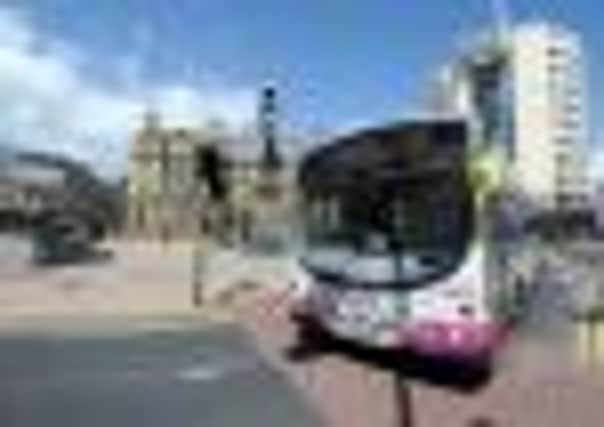‘Quality contracts’ backed to put failing bus services right


Metro, the county’s passenger transport authority, is planning a “quality contract” that will give it responsibility for routes and fares and aim to ensure customers can switch between different bus companies on a journey without paying a premium.
A report to next Friday’s Integrated Transport Authority meeting will ask members to support the plan which will be the first of its kind in England.
Advertisement
Hide AdAdvertisement
Hide AdMetro chairman Coun James Lewis said: “If approved, this new framework will be an opportunity for us to develop the strong partnerships we already have [with bus companies] based upon aligned incentives and with risks and rewards shared between partners.”
Over the past 12 months Metro has discussed the idea of quality contracts with bus operators, which suggested an alternative – a partnership that would keep companies such as First and Arriva Yorkshire in the decision-making loop. Earlier this year Metro asked the Association of Bus Operators in West Yorkshire (ABOWY) to develop plans for improved partnership working. ABOWY submitted a partnership plan focused on key objectives including cutting carbon emissions, reducing journey times on key commuter, business and freight routes and improving customer satisfaction with the transport system and services.
However Metro is expected to press ahead with plans for a quality contract scheme. It would mean bus companies were contracted to run services for Metro with requirements over integrated ticketing, customer service and with the transport authority involved in the setting of routes and fares.
Yesterday Coun Lewis described ABOWY’s partnership offer as a “strong one” but said it did not offer a common integrated ticketing system which is at the heart of successful public transport systems in London and many European cities.
Advertisement
Hide AdAdvertisement
Hide AdHe said: “It is clear that people across West Yorkshire are not happy with some bus services and this has been reflected by a steady drop in passenger numbers over the past 10 to 15 years.”
He added: “No matter what party they represent, my transport authority colleagues recognise that buses are vital to West Yorkshire’s economy and wellbeing and that the current deregulated framework, which has led to fragmentation, a lack of long term planning, instability inadequate rewards for some operators and excessive profits for others, is not working.”
He said Metro spends £23m a year subsidising local bus services that operators do not consider them profitable and approaching £50m on the county’s concessionary fares scheme.
He said: “I can understand why the bus operators could perceive the change as a threat, but with declining patronage numbers and passengers saying that they have nowhere to voice any dissatisfaction they may have with services, they cannot want to continue with the current framework which is failing everyone.”
Advertisement
Hide AdAdvertisement
Hide AdFigures show bus passenger numbers in English metropolitan areas outside of London have halved since bus service were deregulated in 1986. Before this services were run by metropolitan areas with powers to set low fares.